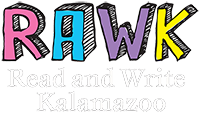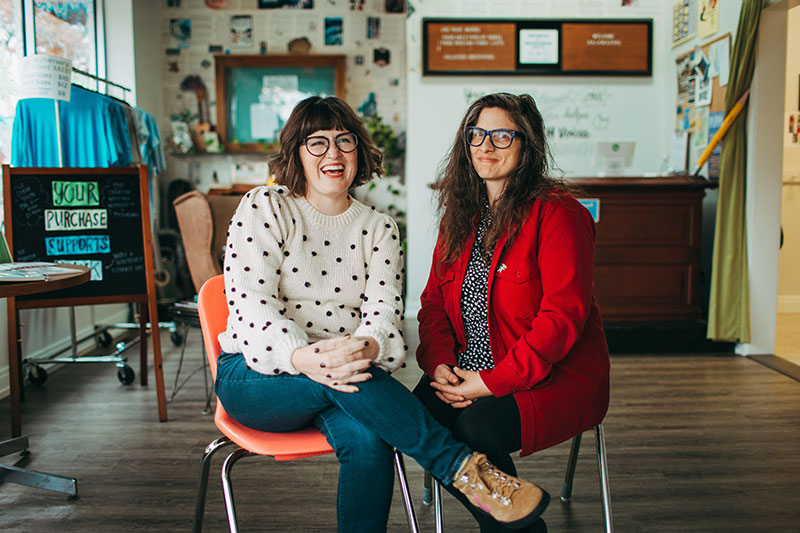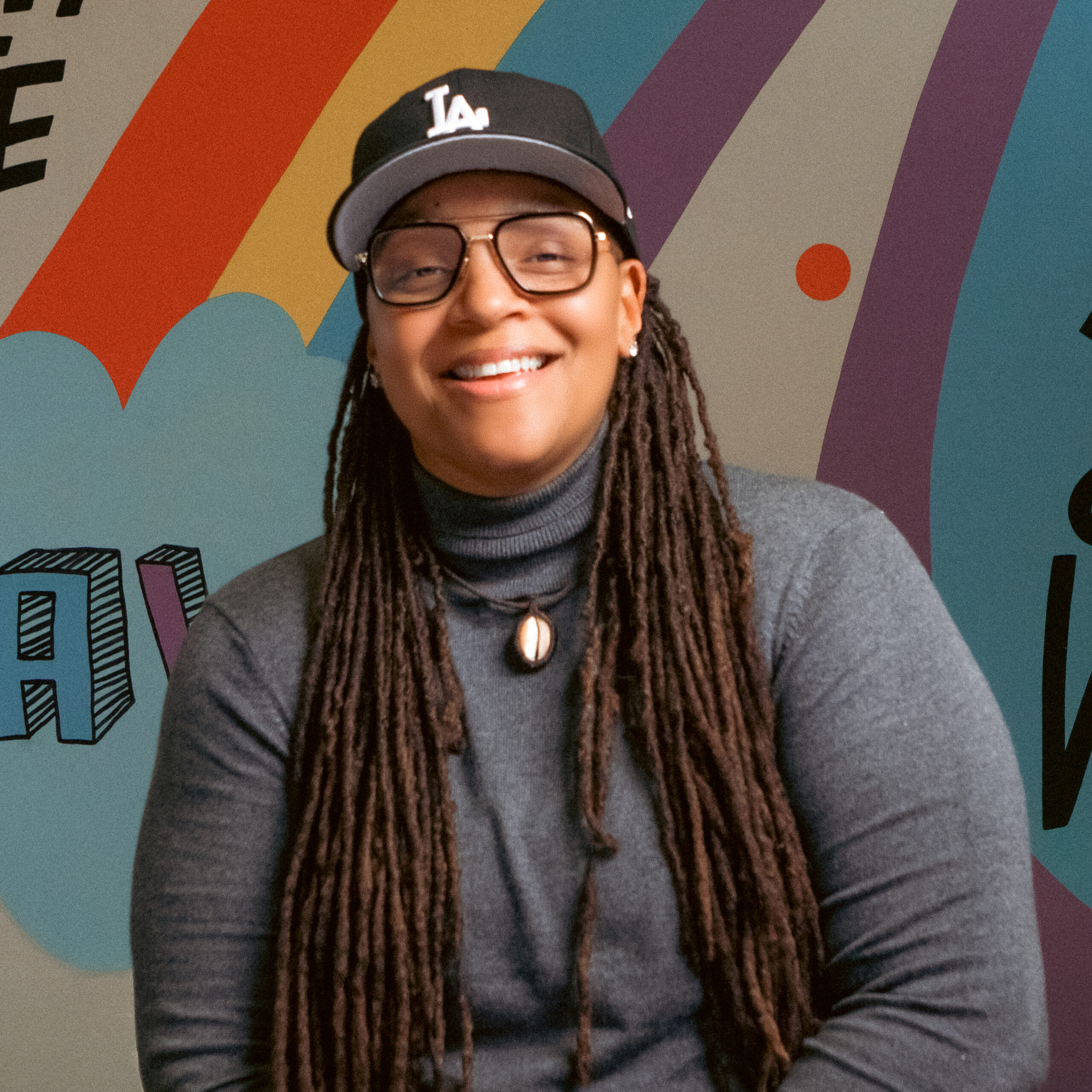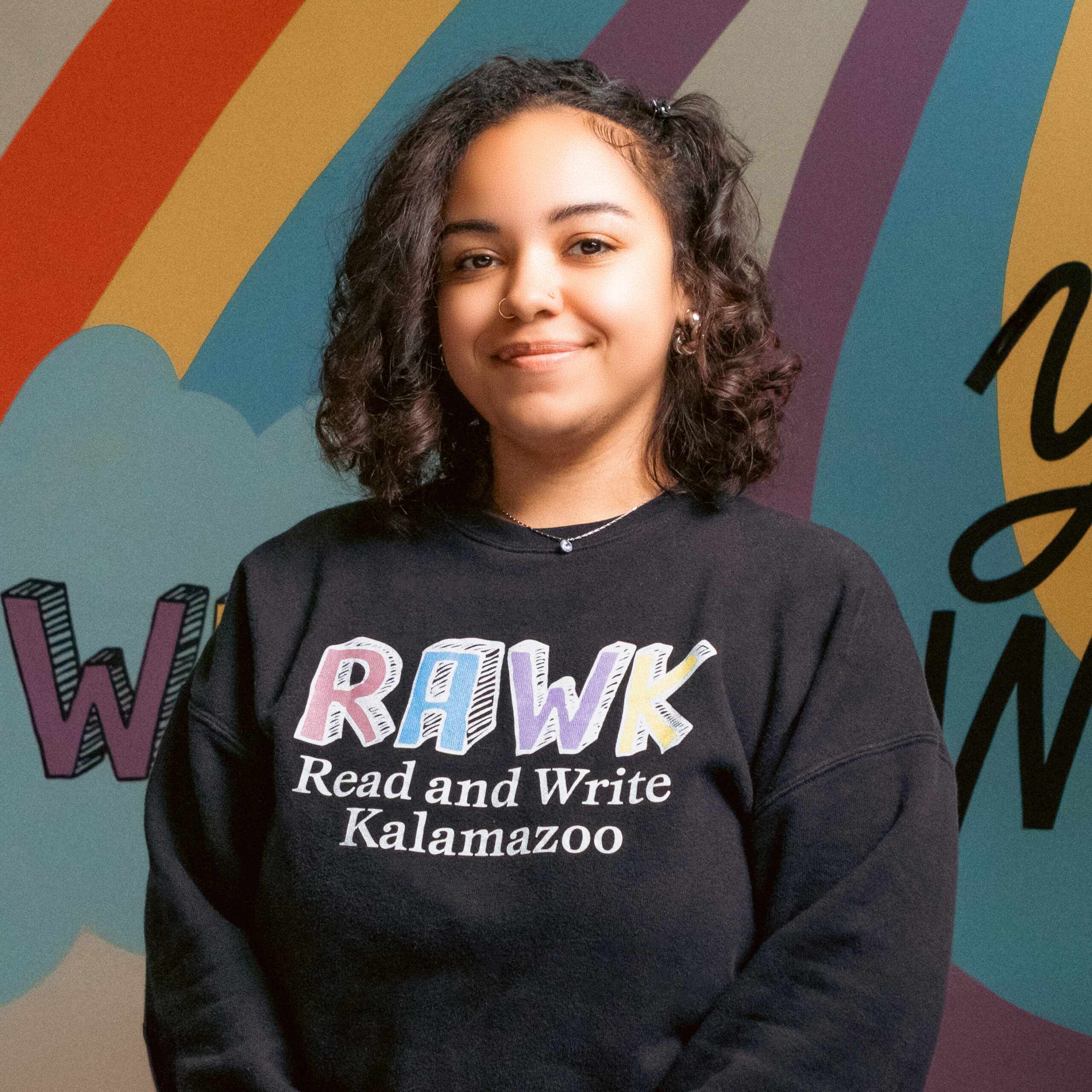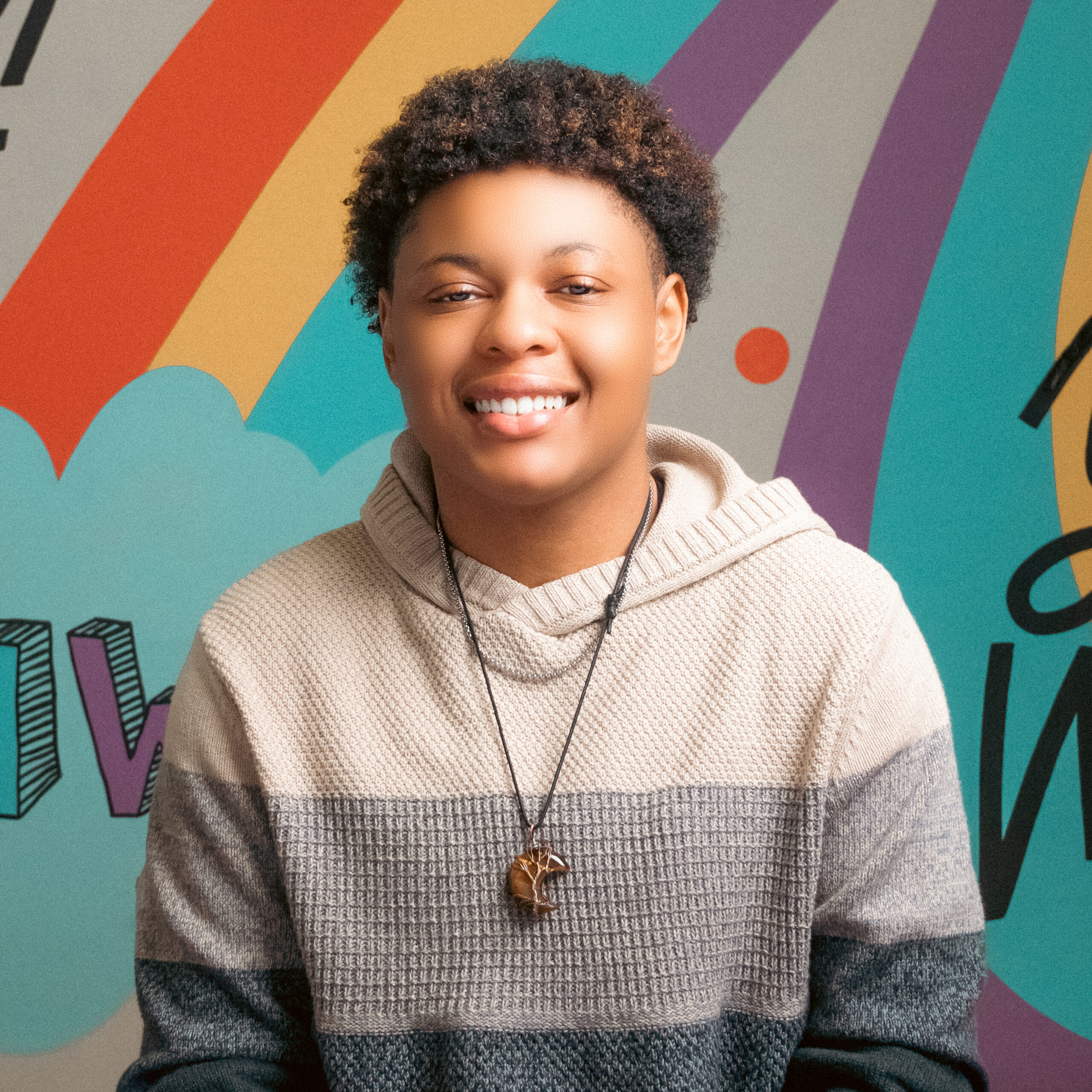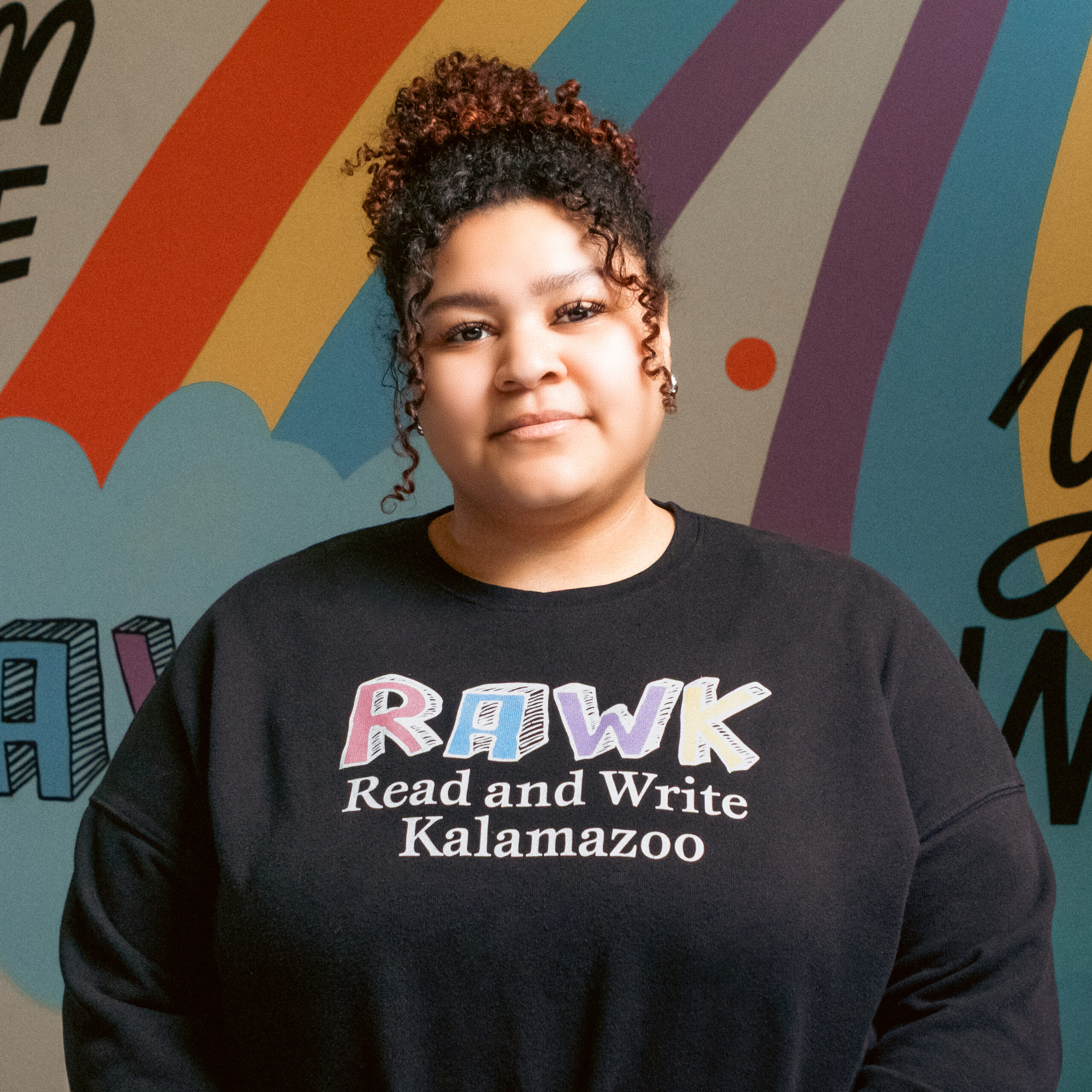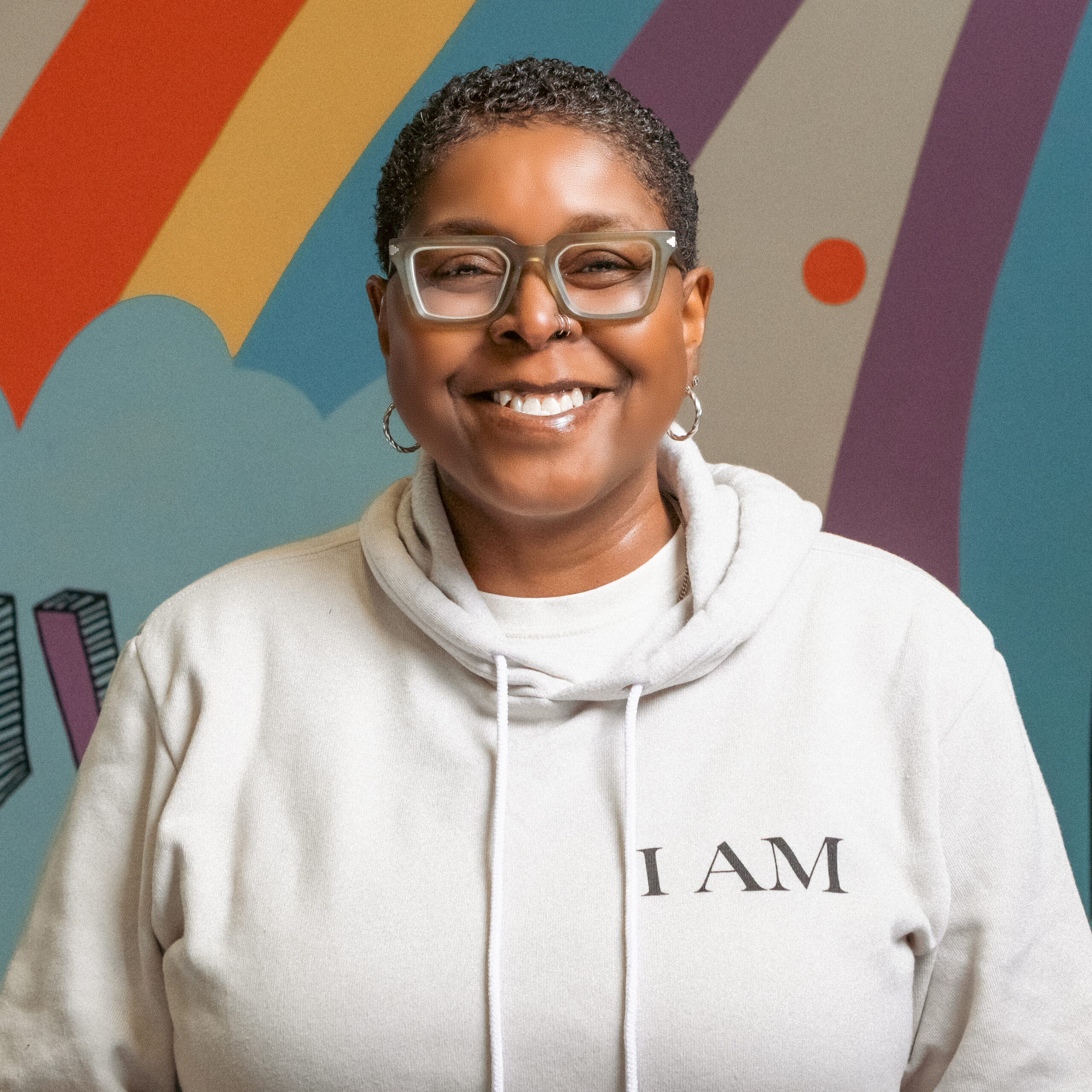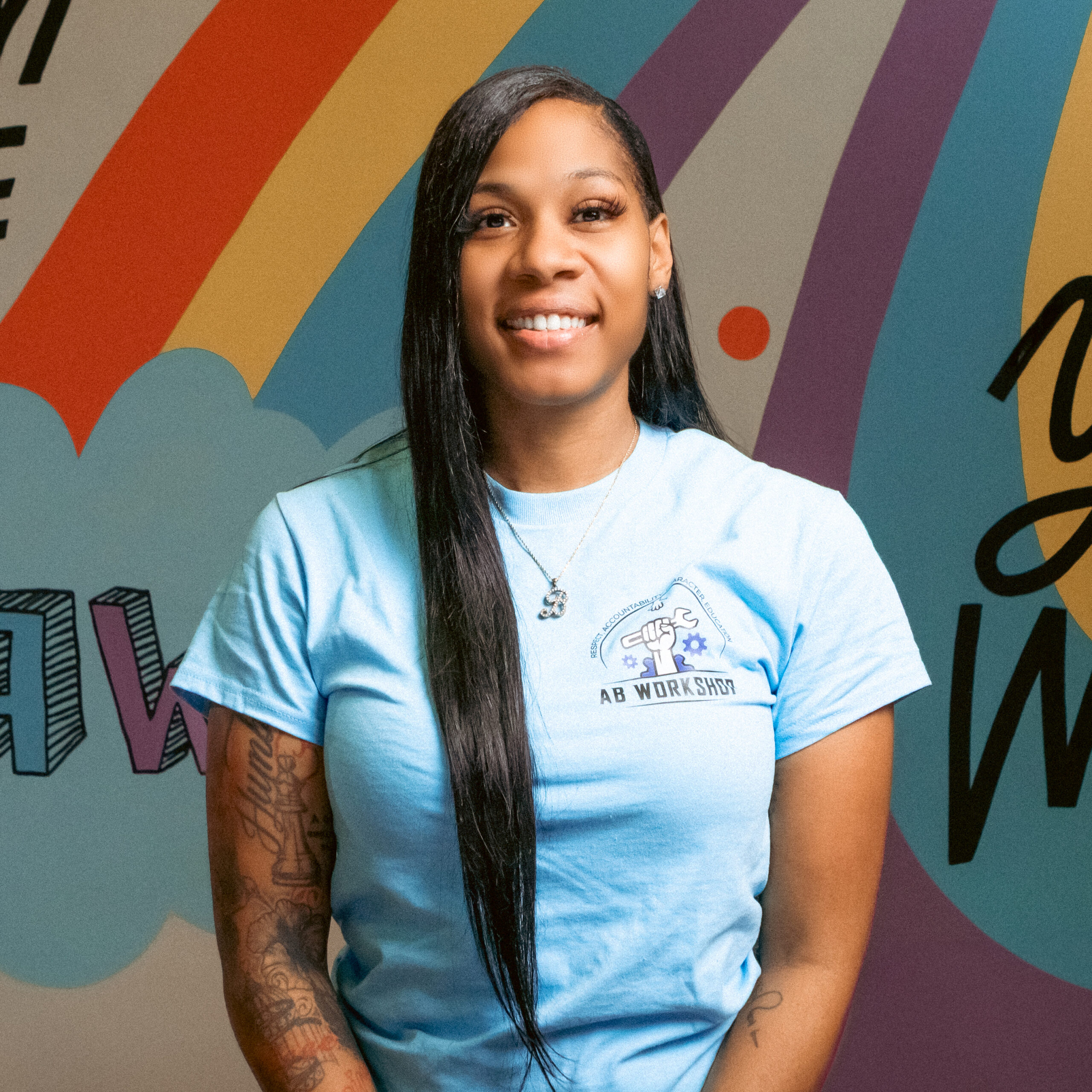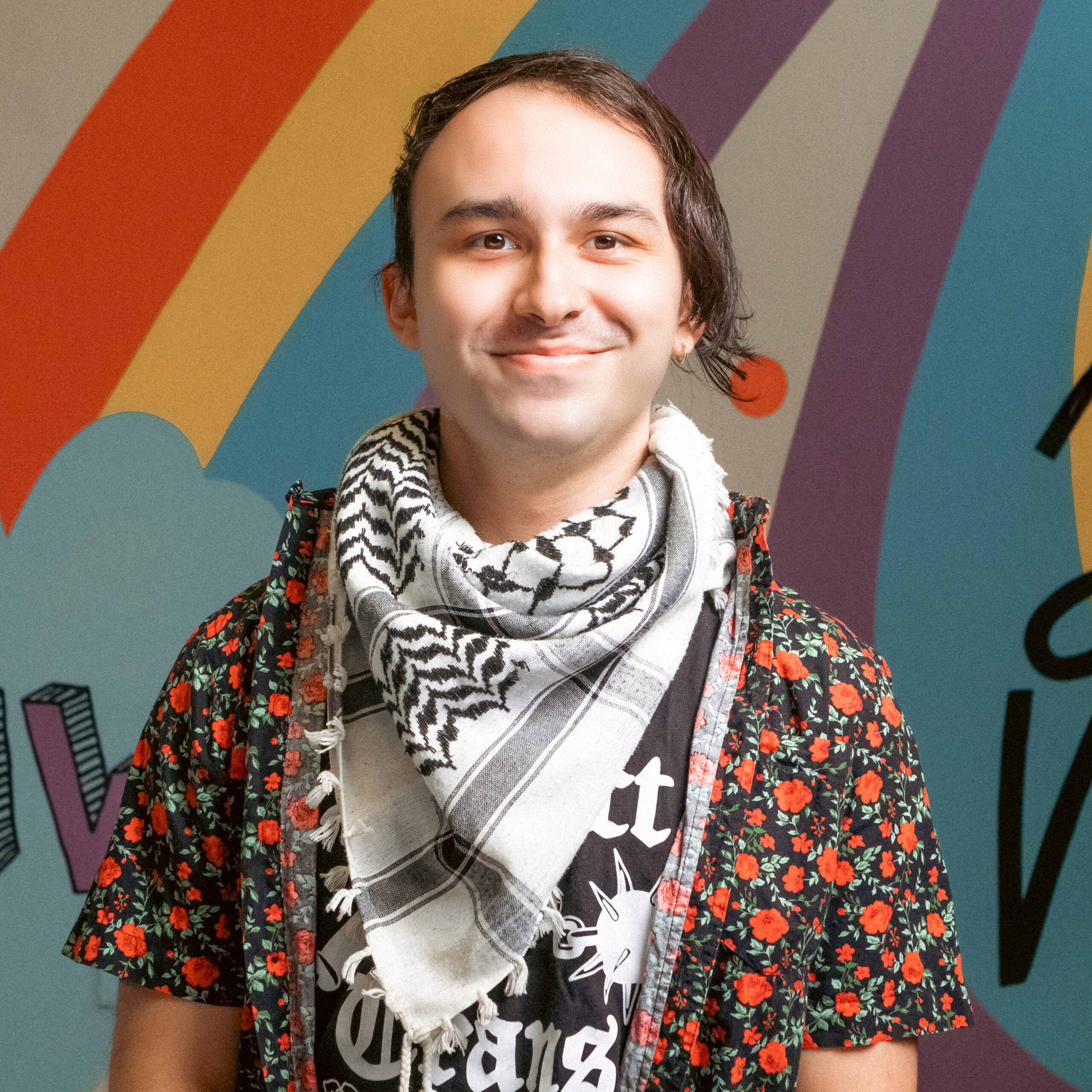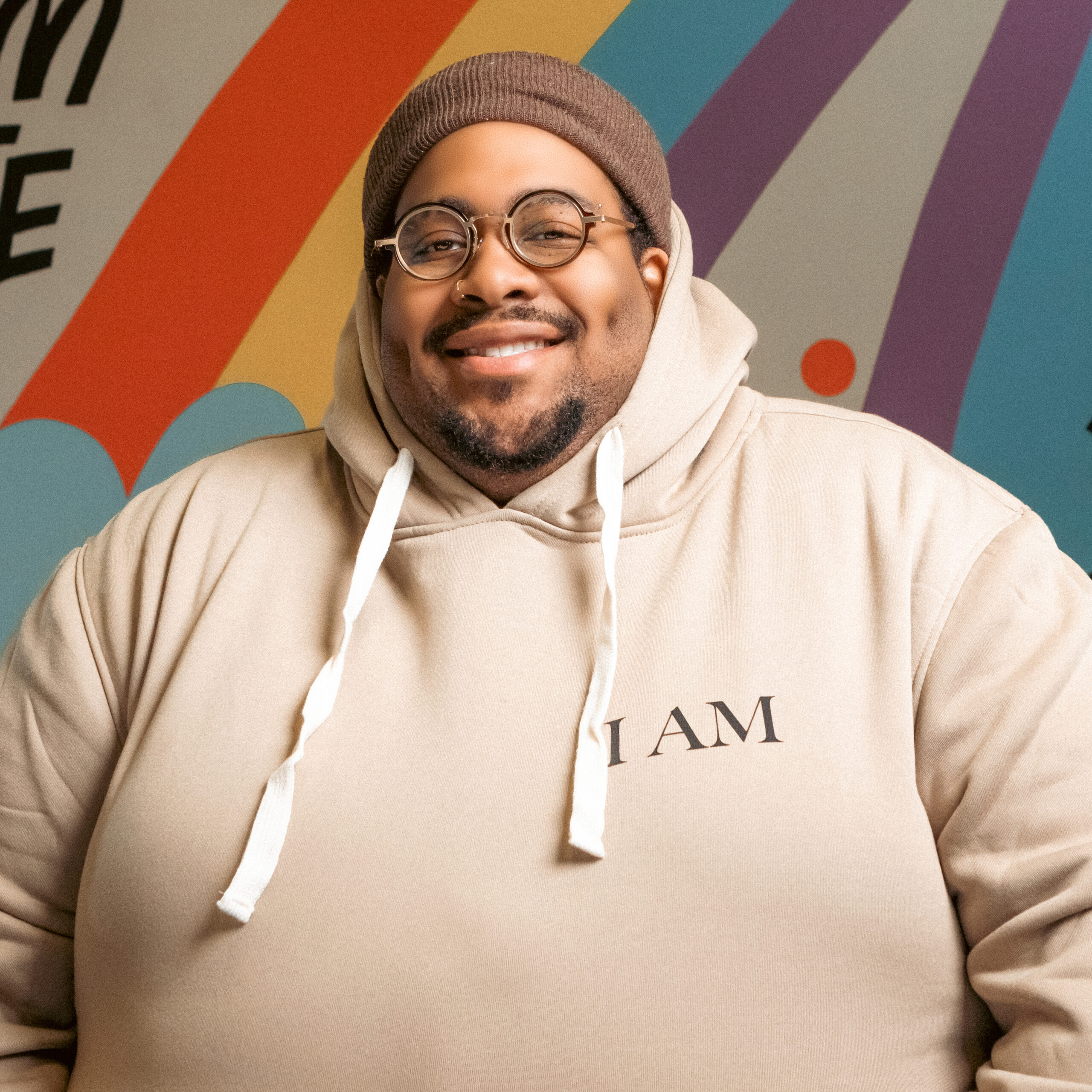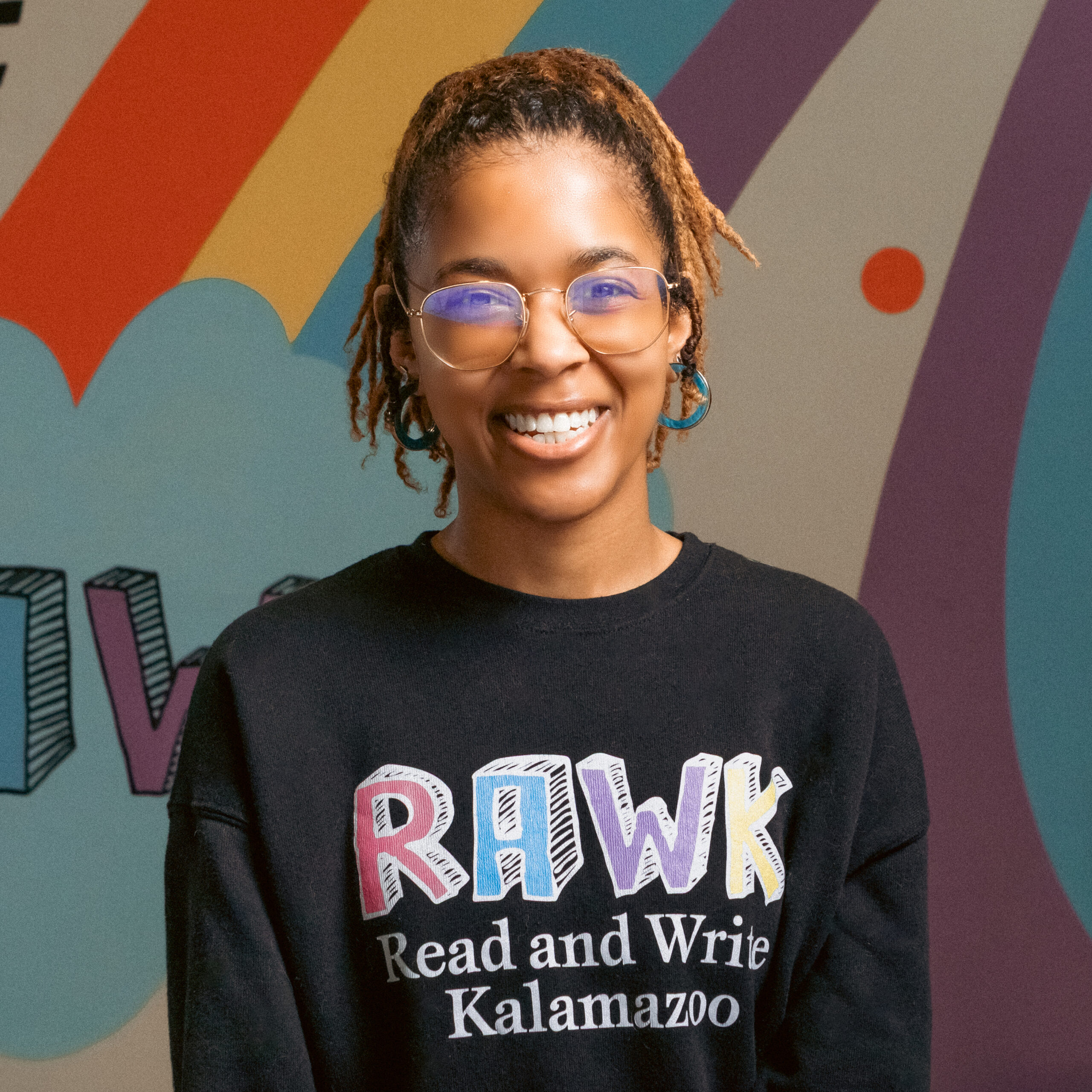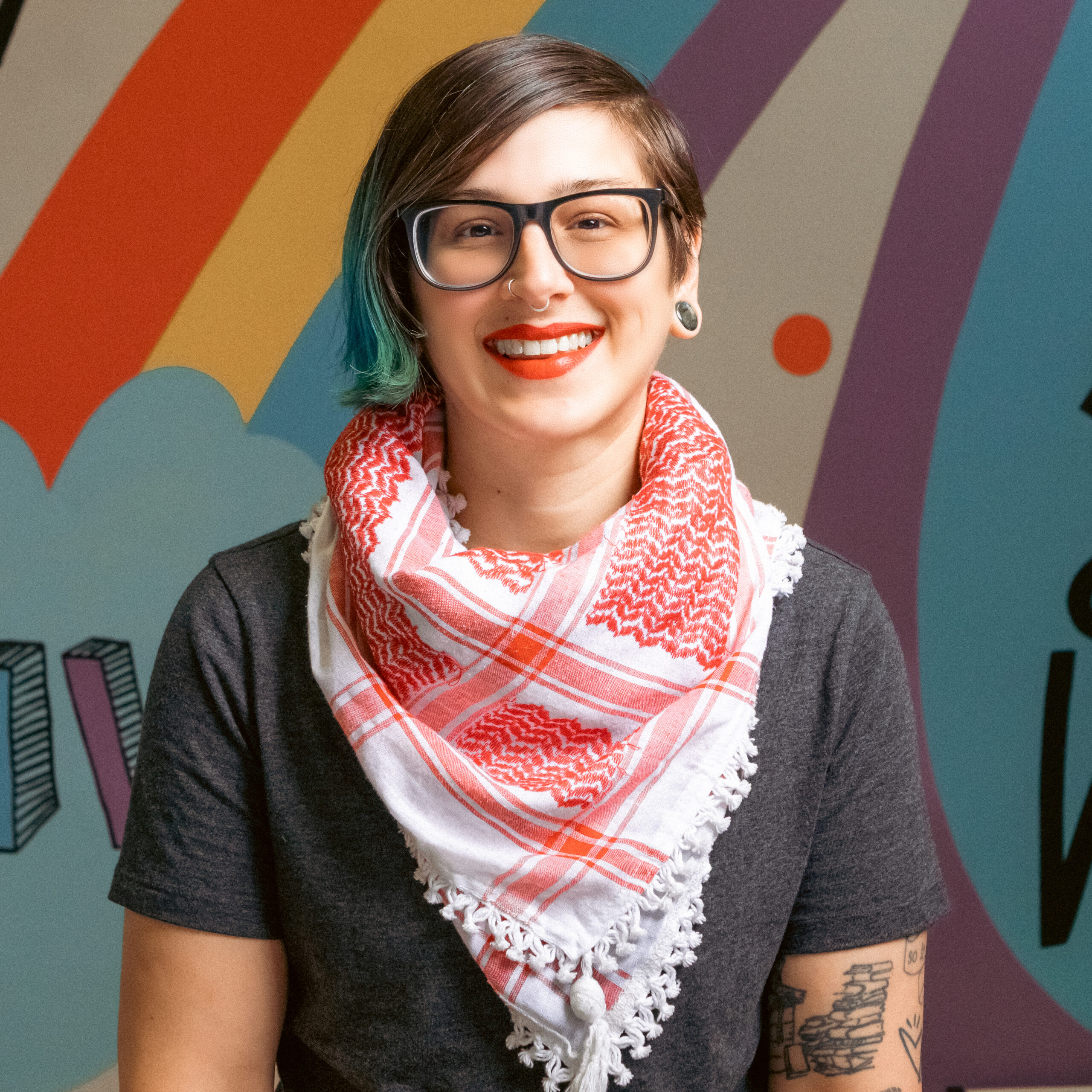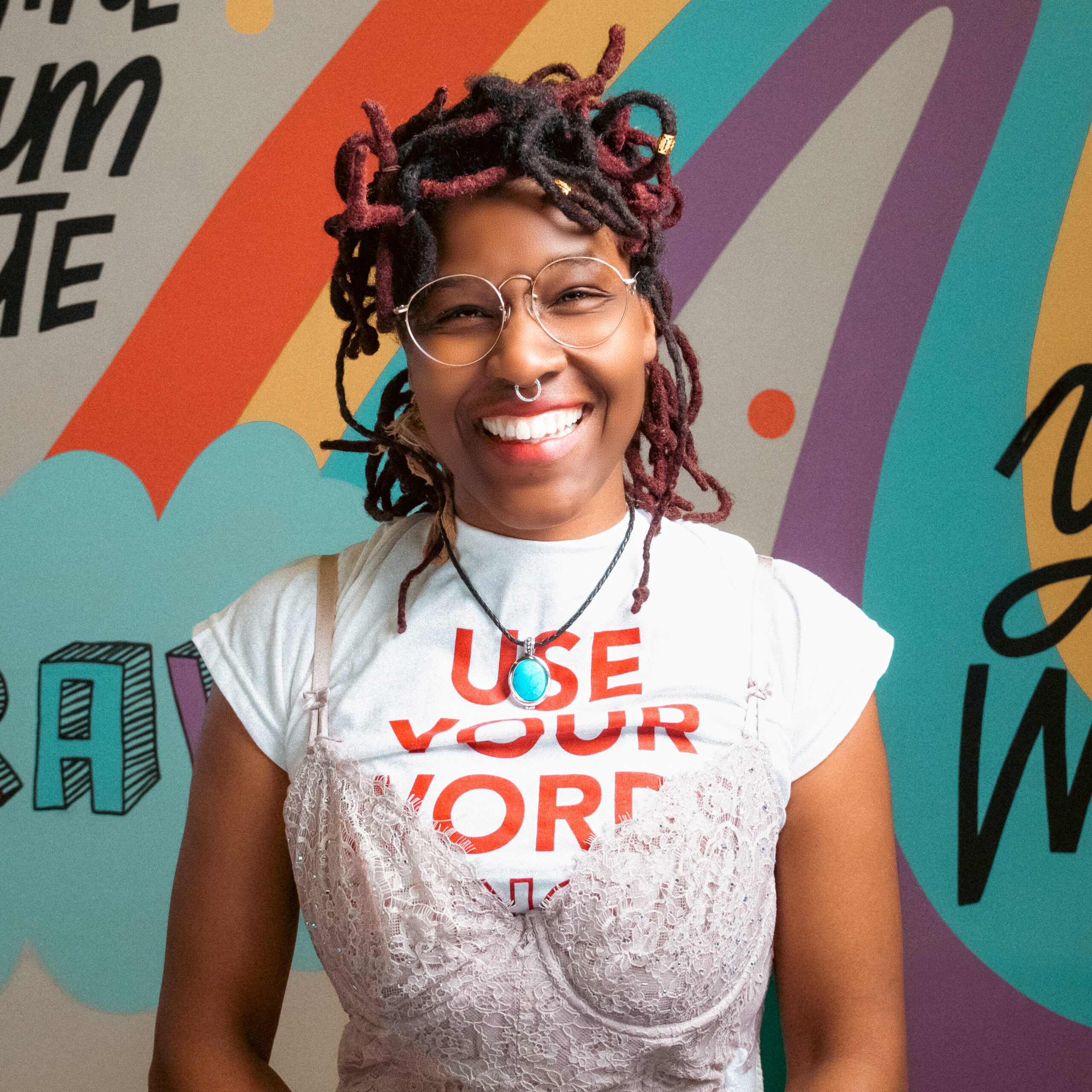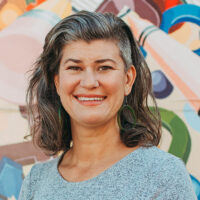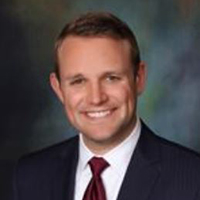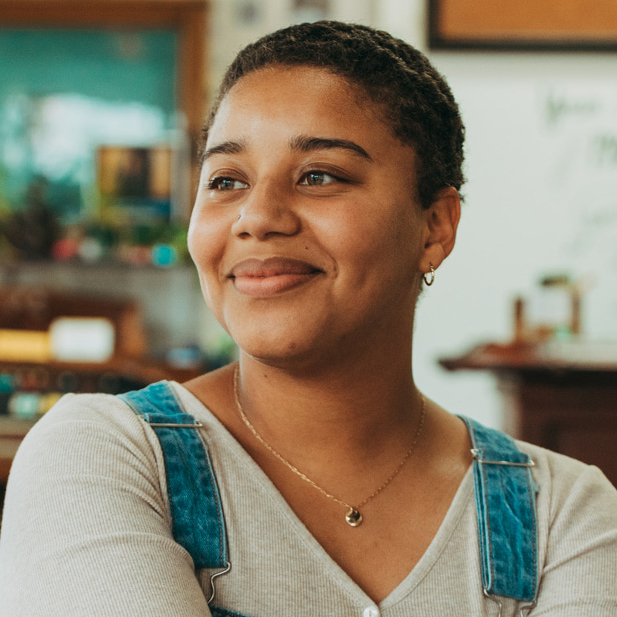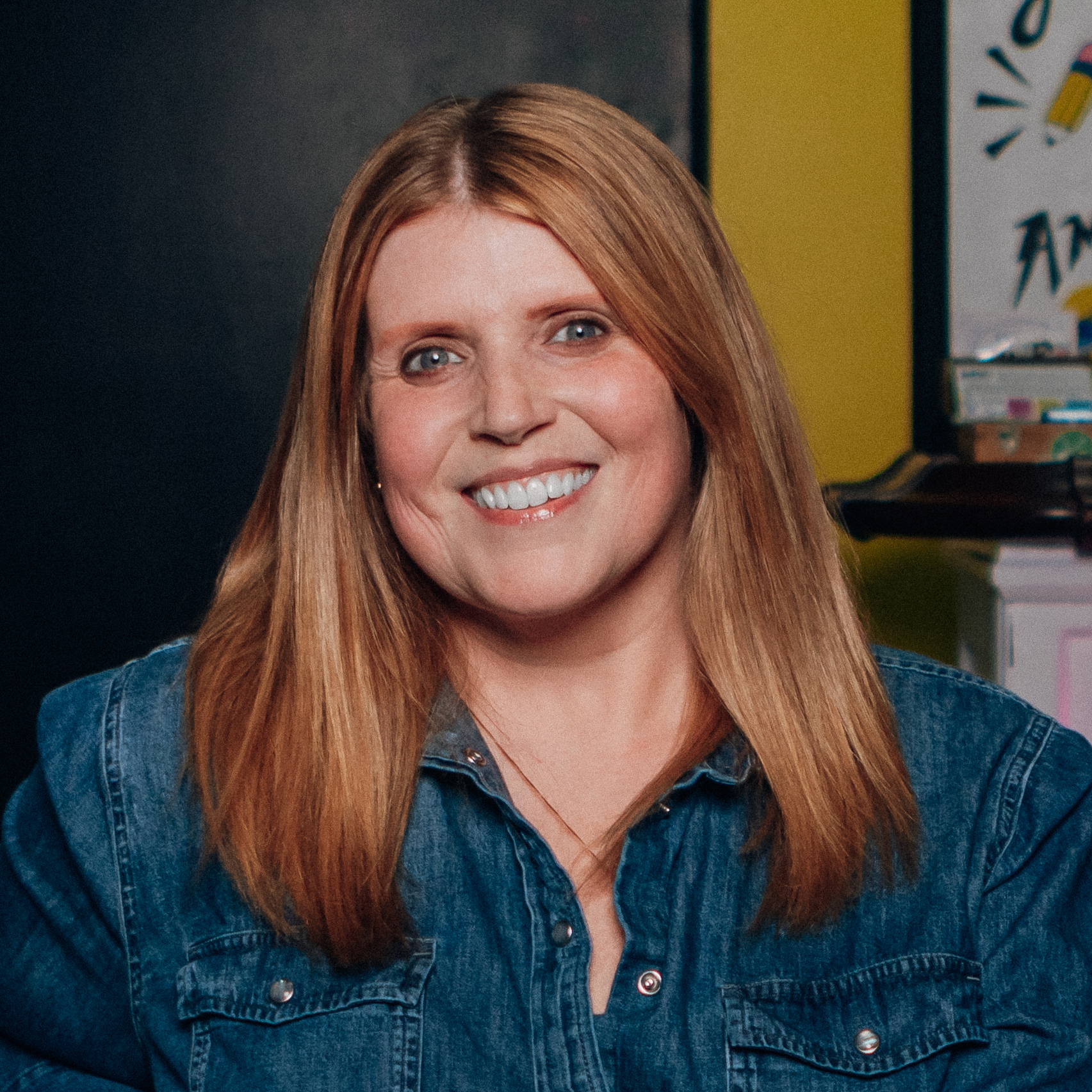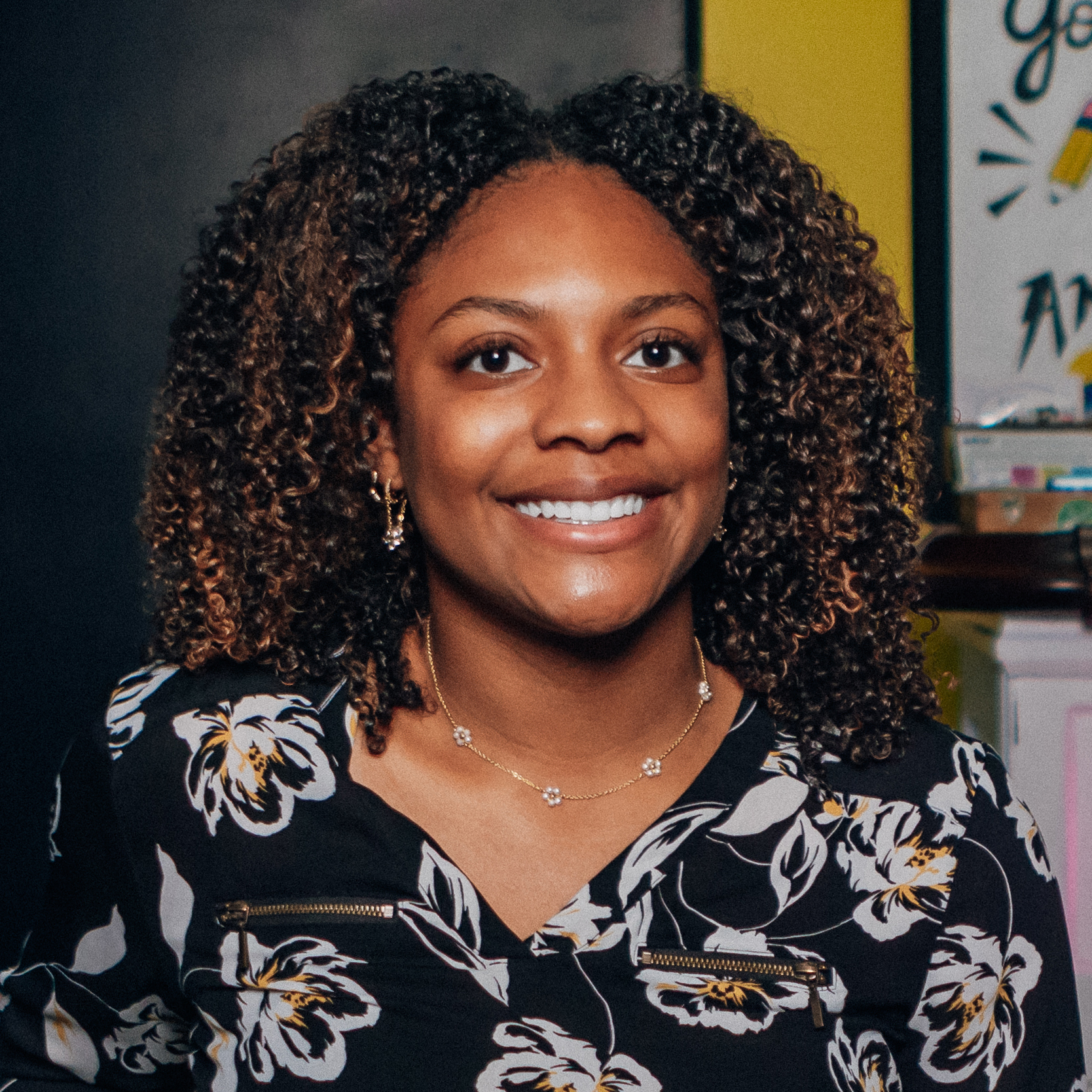RAWK was born of a place and a promise. Kalamazoo has long been a city of arts and letters, a community that cultivates and elevates expression. While the potential impact of the Kalamazoo Promise is stunning it is not surprising that it could happen in Kalamazoo, a city with an expansive literary and academic culture. Looming, however, over The Promise and over Kalamazoo was and is the disparity in outcomes between youth who are white and youth of color, between youth from low-income households and their peers who have access to the resources necessary to thrive.
RAWK grew out of a community desire to shore up the disparities highlighted by The Promise. Students cannot access free college tuition if they do not graduate from high school. Youth cannot navigate an academic landscape without support. With under-resourced schools and families struggling to provide, it is incumbent upon the community that makes a promise to be sure that promise can be realized for all.
Emily Kastner and Anne Hensley both knew the power of literacy as driver in their own lives. Both writers, Kastner a teacher and Hensley an editor, they had long benefitted from Kalamazoo’s vital collaborative culture. Both recognized what their access to opportunity and their ability to advocate for themselves had granted them: well being, joy, meaningful work, and strong relationships. Both wanted to contribute to offering that opportunity and advocacy to all youth in Kalamazoo.
Late in 2012, beginning with a small grant from the Vine Neighborhood Association, Kastner and Hensley began to reach out to their community, to create and strengthen the networks that would become RAWK. Soon a group of educators, artists, families, and local business owners rallied around the hope of offering accessible, inclusive, joyful, creative literacy programming for all.
Kastner and Hensley had both long been inspired by the work of 826, a national network of literacy support organizations. The 826 organization provides free literacy programming, homework help, and publishing opportunities to many thousands of students nationwide, and has inspired dozens of learning centers throughout the world. The 826 model is an innovative and cultural commitment to inspiration itself, a sincere application of the tools of joy, creativity, fun, and whimsy. Kastner and Hensley knew Kalamazoo was intrinsically suited to growing such an organization.
It is essential that RAWK represent all of Kalamazoo. In order to live into this principle the founders established 1) that no one would ever be turned away for inability to pay for service and that 2) RAWK must serve youth where they are. These tenets became guiding forces, sentries for development and motivating ideals. RAWK formed partnerships with schools and youth-serving organizations, visited classrooms and libraries and summer camps. Wherever youth were gathered, RAWK has aimed to serve them. RAWK cannot truly serve all of Kalamazoo if it does not reflect all of Kalamazoo. From our board of directors, our staff, RAWK volunteers and to the youth we serve, we strive to be an organization that values diversity and inclusion at every level.
Volunteers are the core, the muscle of RAWK’s mission. Through small groups and low youth-volunteer ratios, we are able to build relationships and fruitful connections with one another. Volunteers are writing alongside youth as an essential part of the writing process. Collaboration is the beating heart of RAWK’s work. It is through our connections that we learn from one another, that we hear and are heard, and that we amplify one another’s stories.
Story is life force. Our stories must be told and witnessed. Every one of us needs the time and the space and the support to access our voice. A community can only be as healthy and as just as the spectrum of stories it hears. The challenge of inequity is not solved by one promise, but by a collective commitment to witness one another every day, leaving no voice unheard. This is RAWK’s ongoing commitment.
Youth will engage with community and will advocate for themselves and others when those around them tell them that their voices matter. To amplify those voices brings them into public life and makes them agents of action and of change. RAWK helps youth to access and cultivate their own voices and ideas, publishing their work and bringing their community around them to listen. We share. We build perspective.
Great writers are readers. To borrow a metaphor from Rudine Sims Bishop, we bring stories to youth, and our community at large, that are both mirrors reflecting identity and windows to look in, to listen and learn from our neighbors whose experiences and identities are different than our own. We listen. We build empathy.
In 2017 RAWK reached two milestones essential to our founding principles: free programming for all and the establishment of RAWK’s own home: a storefront, writing center, and publishing hub in the heart of downtown Kalamazoo’s Vine Neighborhood. As with every step of RAWK’s development, this progress would not have been possible without a larger community effort from partners, funders, volunteers, and students. As in our creative work, our community power is in collaboration. RAWK catalyzes this collaboration to serve all.
We envision a future for RAWK rooted in equity, access, joy and creativity; a future rich with opportunities for youth to explore and experiment with their voices, providing platforms to be heard and positive experiences with reading and writing. RAWK believes that the success of every student relies on an invested community. May we always lift youth voices, value their stories and equip them with the tools they need to thrive in the world.
